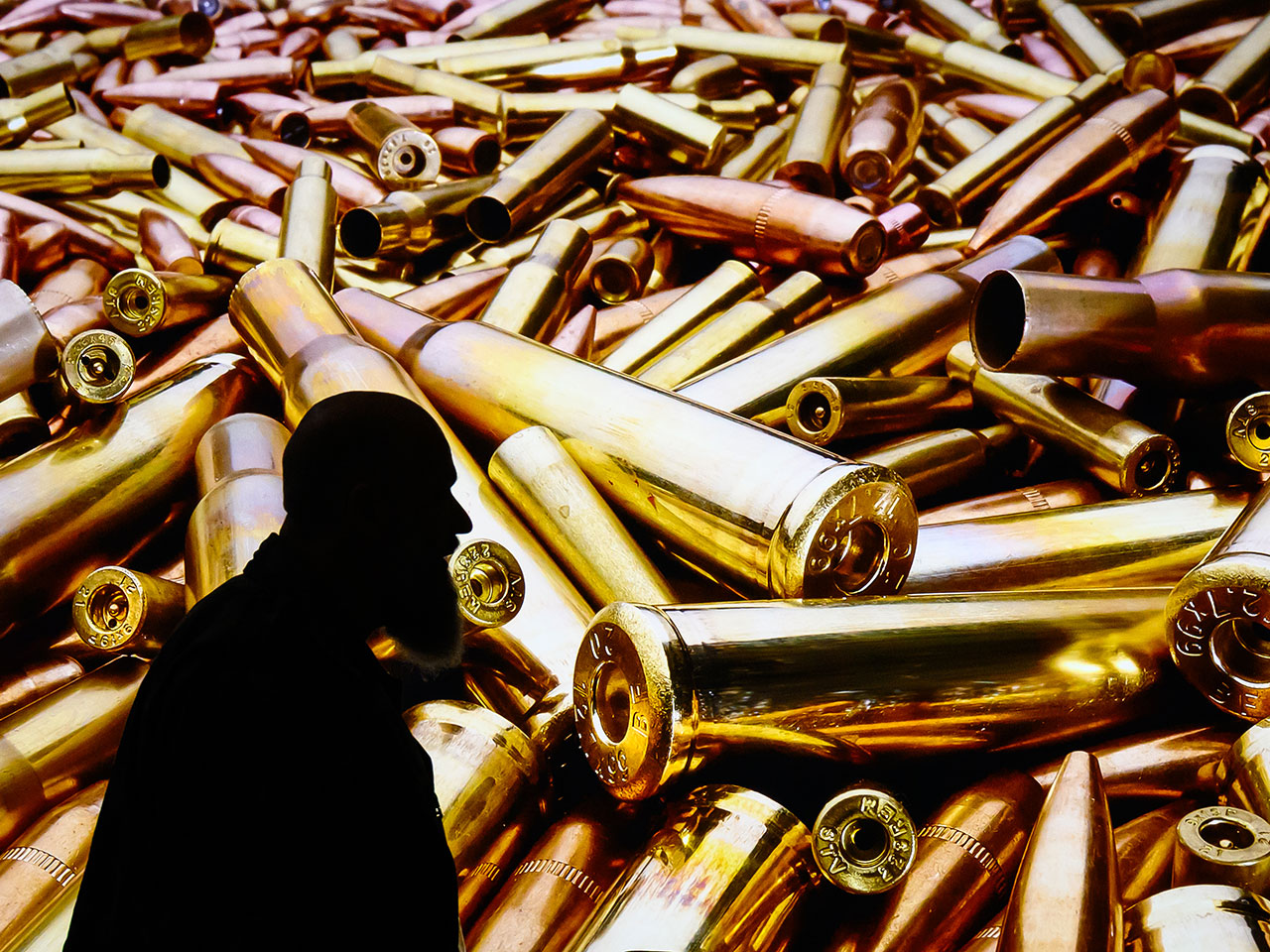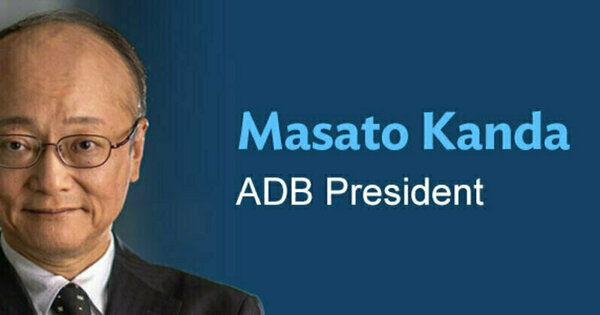By Will Dunn
Copyright newstatesman

On the Elizabeth Line yesterday morning, two men in suits snarled at each other. One had barged past the other; a furious exchange ensued. I felt moved to borrow Dr. Stangelove’s best joke: “Gentlemen, you can’t fight in here! This is the train to the arms fair!”
DSEI is the biggest trade show in Europe for the defence industry, a four-day festival of missiles and mines: Glastonbury for arms dealers. London Death Week. It is just like the many other trade shows that are held in London’s huge Excel complex, except instead of consumer gadgets or cookery equipment or boats, the stalls here are full of guns.
This year’s show was bigger and better attended than usual, thanks to Donald Trump. The US President wasn’t here, but the defence spending commitments he has extracted from Europe – including Keir Starmer’s plan for “the biggest sustained increase in defence spending since the end of the Cold War” – have galvanised the industry. The UK’s plan involves spending an extra £13.4 billion a year from 2027. It is, as one British defence technology executive put it to me excitedly, “boom time”.
It is also boom time, in a much less desirable sense, for a lot of people around the world. In 2024, according to Uppsala University, the number of active conflicts reached the highest level since records began in 1946. Battle-related deaths in the last four years have been at the highest level for three decades. On the first day of the show, Israel broke international law by attacking Qatar and Poland shot down Russian drones that entered its airspace, the first active combat between Nato and Russia since Russia’s invasion of Ukraine.
At DSEI, the reality of what ordinance does to a human being was obscured. A thesaurus of euphemisms provided moral distance. That is not a kamikaze drone, it is a “loitering munition”. These are not guided missiles, they are “payload solutions”. This is not a military robot, it is a “four-legged force multiplier”. A missile display offers “Hard Kill” and “Soft Kill” options. Munitions companies tout “increased soldier lethality” (killing more people) and “improved threat defeat” (killing more people).
As with any trade show there were lanyards, coffee, free keyrings and pens. I pocketed a squeezy stress-toy grenade, a small toy koala with a little jacket declaring its support for the Australian defence industry, a tub of lip balm that promotes a company which, I think, makes firing pins. Turrets for surveillance systems and laser weapons swivelled noiselessly. An automated high-calibre machine gun swept from side to side, aiming its barrel politely over the heads of attendees. A venue worker with a bottle of furniture polish buffed the plinth beneath a supersonic cruise missile.
On the front desk at one stand there was a plate of sweets and a Kinetic Energy Penetrator. A representative of the Penetrator – a sort of dart, about the size of a big pen, made from tungsten alloy – showed me a block of steel and the scorched, pitted hole that was made when his dart went through it. The steel block is three inches thick. “We are not a munitions company”, he assured me. “We make high-performance materials.”
On one stand there were little aerial drones, like the one my nephew flies in his garden, except these ones had handguns mounted on top. Another company made buttons and switches that said things like ARM and FIRE. There was a special switch for soldiers to use to delete all the data on their equipment if they were about to be captured. It had a firm, decisive click to it. On the side of one stand, at knee level, an advert read: “High-quality MIL-grade TNT available from 2028 onwards.” In the long hall of American defence companies – the biggest overseas exhibitor – a boot manufacturer urged customers, confusingly: “Arm Your Feet”.
The defence people know how to handle guns. Men and women in formal businesswear confidently picked up large assault rifles and pressed them into their shoulders; when the firing pins clicked their expressions did not change. They might as well have been in TK Maxx. Senior officers in the dress uniforms of different nations moved through the crowd in groups. Men of military bearing wore their pinstripe suits a little awkwardly, ex-soldiers not yet comfortable in the uniform of the private sector. Everywhere there was the promise of security, of control, of “terrain dominance”. A ten-foot-long missile was surrounded by hoardings which read: “Technology For Peace And Freedom”.
This is the permanent contradiction of the arms industry: it sells safety, it sells violence. Western democracies have been complacent in their assumptions, and are now scrambling to acquire lethal hardware in the hope of buying security. There are many good arguments that we need a stronger military, equipped by the people at DSEI. But the defence business is also the offence business.
More than 50 of the exhibitors at DSEI supply defence equipment to Israel. Although the Israeli delegation was not invited to DSEI, its arms companies were here. On the stand of Elbit Systems UK, a subsidiary of one of Israel’s biggest arms companies, my business card was taken away and shown to a man who frowned and shook his head, but the stand was busy with conversations. A TV screen showed the company’s products – described to me by a representative as “good kit” – turning an armoured vehicle into a cloud of fragments. I spoke briefly to a technician who was tinkering with a simulator of the weapons systems the company makes for the Israeli air force; the world’s grimmest video game. I was later told, by a person familiar with Elbit, that it expects to do more business with the British government.
A sales director at a British defence company told me his daughters, in their early twenties, don’t like what he does for a living. He thinks it’s because they get their opinions from social media.
Like a number of British businesspeople I spoke to at DSEI, he was also concerned that the British government’s promise to support its homegrown defence companies has been lacklustre, when America aggressively promotes its defence manufacturers. Another worker at a company which has factories in Britain and France told me the French are much more openly patriotic in their defence procurement. Another British manufacturer told me that work still goes to European companies by default, because some Ministry of Defence specifications still use European standards. Nevertheless, most remained optimistic about what a new era of defence spending could mean for British jobs.
Outside the venue, a small protest was almost outnumbered by police and security guards. One policeman said they had had no trouble from the protestors, who held up signs that included “Who Would Jesus Bomb?” and “Armed With Love”. I suspect some of the people inside the venue also considered themselves to be Armed With Love, albeit of a more dangerous sort.
[See also: David Lammy’s Gaza cowardice]



